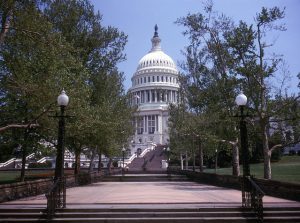
Gov. Gavin Newsom has shown his support for the bill, as he now takes aim at updating California’s cannabis regulations.
Assembly Bill 1948, introduced by Assembly Members Rob Bonta, Ken Cooley, Reggie Jones-Sawyer, Tom Lackey, and co-authored by Assembly Member Mark Stone, seeks for three years to:
- lower marijuana retail sales state tax from 15 percent to 11 percent; and
- eliminate the cultivation tax altogether.
According to the state’s recent budget summary, these updates are intended to “simplify the system and to support a stronger, safer legal cannabis market.”
If you need legal assistance for your cannabis business, our Los Angeles marijuana lawyers can help.
What Took so Long?
Over the last two years, similar proposed legislation updates have been pushed aside, with Gov. Newsom believing it too early to make legislative changes right after establishing legalized cannabis use.
Governor Now Ready to Update Laws
The governor more recently, however, has hinted at now being more open to such an update. His new spending plan for the state not only includes a shuffle of agencies regulating the sale of marijuana, but also a streamlined approach for tax collection.
As it stands, the Department of Food and Agriculture currently licenses and regulates marijuana farms, while the state Bureau of Cannabis Control issues licenses and enforces the rules relating to retailers, distributors and delivery firms. Separately again, the state Department of Public Health oversees all marijuana manufacturers, including those who yield edible cannabis products.
Additionally, Gov. Newsom has also displayed a willingness to consider further measures intended to help strengthen the legal cannabis marketplace.
Pot Industry’s Stunted Growth
Some industry insiders predicted that Proposition 64 would see a legal cannabis market in California generate $1 billion in state tax revenue each year. But last week’s budget estimate shared by the governor showed just $479 million is expected this fiscal year, followed by $550 million in the 2020-2021 budget year.
Contrary to expectations, the legal marijuana market has not grown as quickly as anticipated. Its slow growth is routinely attributed to high taxes, excessive bureaucracy, and market limitations resulting from three of out four Californian cities banning marijuana stores within their city limits.
Josh Drayton from the California Cannabis Industry Association (CCIA) has said changes like these proposed, are critical to the regulated marijuana industry’s survival. Furthermore, they’re necessary for licensed business operations to stand a chance at competing with the thriving illegal market, which “evades the financial obligations which drive up the cost of tested and regulated products.”
So when lawmakers re-introduce a bill of this nature, it demonstrates they understand the challenges legal cannabis business owners face, and the dire need for legislative assistance. The proposed bill seeks not only to simplify tax collection, but also to ease licensing and ultimately broaden access to the regulated marketplace.
Legal Implications
These proposed tax cuts are vital to the survival of California’s legal cannabis industry. Measures such as these must be activated to give licensed operators a chance of competing with the illicit market, which shows little sign of retreating.
Setting up an independent department to oversee the many moving parts making up California’s regulated cannabis industry, will certainly help improve current conditions. Not only unifying the necessary regulatory functions, but also establishing a central contact point for cannabis licensees and local governments.
The Los Angeles CANNABIS LAW Group represents growers, dispensaries, ancillary companies, patients, doctors and those facing marijuana charges. Call us at 949-375-4734.
Additional Resources:
Assembly Bill 1948
Proposition 64
